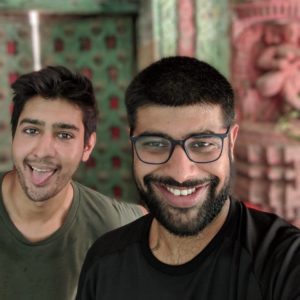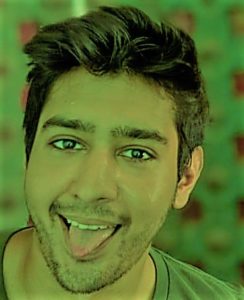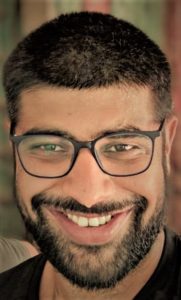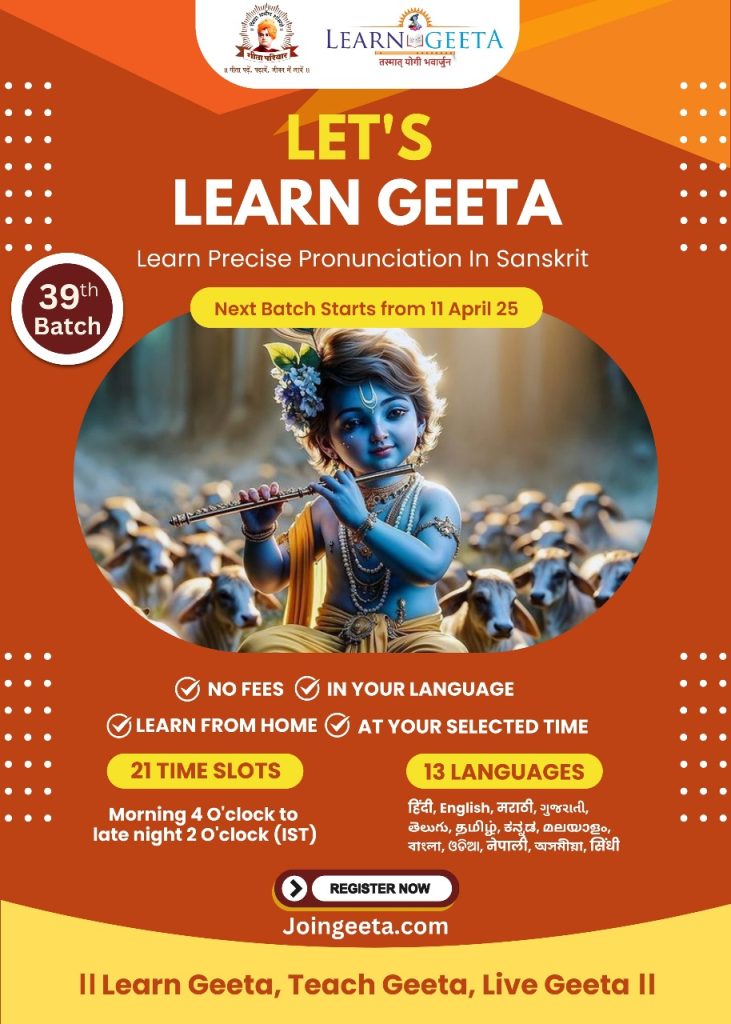Food is the fulcrum of our lives: Devang and Varud
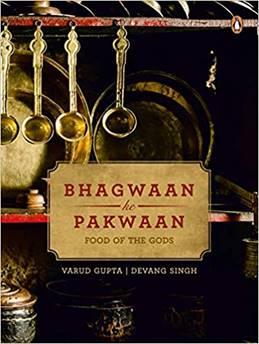
Saurabh Tankha
The rice beer bellies of a Christian village in Meghalaya; food fed to departed Zoroastrian souls; a Kolkata-based Jewish community in decline; Tibetan monks who first serve Preta, the hungry ghost; and 56-course feasts of the Jagannath Temple — these are the stories in Bhagwan Ke Pakwaan (or food of the gods), a cookbook-cum-travelogue exploring the connection between food and faith through the communities of India. There are legends and lore, angsty perspectives, tangential anecdotes, a couple of life lessons and a whole lot of food. This is how you get introduced to Devang Singh and Varud Gupta’s Bhagwan Ke Pakwaan (Penguin Random House India; 154 pages; Rs 599). We had a quick chat with the young authors on varied subjects…
When, where and how did you two meet and what was that one common thing you both had to have hit it big time?
Devang: The realisation that food is the fulcrum of our lives. I have been shooting food for FMCG brands and restaurants for over seven years and wanted to do a personal project to get some exciting fresh perspectives on cuisines in India apart from the marketing realm where I do exactly as what the consumer needs to see. The moment I met Varud online through my business partner Vidur Gupta, we couldn’t stop talking about food and once we met, we couldn’t stop eating. This was in a way our calling to feed the bellies around the world with things that we couldn’t get over.
Varud: Passion for food. That’s where this all really started. I’d jumped ship from working as a consultant in the States to travel to different culinary cultures — bartending in Peru, grilling in Argentina — and writing was then my way of documenting everything I was learning. When I made it to India, I bumped into this other fellow who could best me at eating and we started to explore what stories could be told so that we had an excuse to keep eating. And until our metabolisms finally quit on us we’ll continue to do projects like Bhagwaan Ke Pakwaan. Hopefully by then, we’ll have the technology to swap out our colons for mechanicals and then keep on eating.
How and when did the idea of penning a book on the foods of gods germinate, especially when both of you do not believe in the existence of God?
Devang: I was photographing a book on bhog or the food at different temples in India when I became interested in how faith and food intersect. But we decided we wanted to go bigger than just one faith. Funnily enough, BKP was our plan B pitch to another idea and the name came while on vacation in Goa together.
Varud: We’re confused, and it’s more fun to pick and choose from these different faiths and then try to decide what God means to us. Somethings there, we just don’t know or understand what. And this book was one step forward in figuring that out.
What was the reason you limited it to five states and on what basis did you finalise these regions?
Varud & Devang: The idea was to try and bring a bit of every faith of India into this book but that wasn’t at all realistic. We must’ve had around 11 places to then painfully trim. At the end of the day, it was the stories that these places and people had to tell that was the deciding factor. The plan for the sixth place got canned last minute but we’re hoping to get to it and the other places very soon.
Is a sequel or sequels in offing?
Devang: Yes, not only are we currently shortlisting the next round of locations — including places outside of India, but we are looking to take this idea to different formats such as food festivals like thukpa-making master classes and TV.
Varud: Fingers crossed.
How much time did it take to put this book together?
Varud: October of the year before last is when we started and we were finally out end of January this year.
Devang: A bit over a year. That’s when we first travelled to Spiti. There wasn’t even a book then, just us wanting to explore food and faith. But then probably six months of top of that to research and develop the idea.
What do you both do for a living?
Varud: I think I’m finally getting comfortable calling myself a writer. These days most of my sanity has been siphoned away by a graphic novel I’m currently working on called Chotu that takes us back to 1947 Chandni Chowk. Devang and I also run a content house called Resting Kitsch Face.
Devang: The name was inspired by Varud’s face. I also run StudioFry, a production studio in Delhi/ Mumbai/ Bengaluru that works with any brand which wants something Interesting and fresh as marketing content like films/ads/ photography or animation.
Are you both foodies? Favourite cuisine and why?
Devang: I’m on a low-carb diet right now and can’t think about food. But it kills me every day. I can be a diva when it comes to my binge days. On those days, I prefer Nepalese or Bhutanese cuisine because of the soul in their recipes.
Varud: Foodie is probably an understatement. My go-to is Japanese. I’ve been having katsu curry as comfort food lately. I’d like to go into excruciating detail describing the dish to make Devang squirm.
Though it is difficult to choose a favourite among so many of these delectable delights mentioned in the book, which is that one dish which you think gets the tag of The Best?
Varud: The pork and greens. Because the black sesame in the dish is amazing and when we ate it in Meghalaya we had a lot of offal cuts mixed in.
Devang: The chicken in bamboo shoot. That texture which it achieves from just Rice powder and fermented bamboo shoots is just a party in your mouth. Again from Meghalaya.
Share something about your respective families…
Devang: I grew up in a very progressive household with my mother and maternal grandparents who made sure to keep up with the times. Though we didn’t have enough my mother made sure I had exposure in all fields — sports/ dramatics/ debating as well as her advertising friends had a huge influence in me turning creative. I love them to bits and will always make sure to keep their head held high.
Varud: We’re a very atypical bania family which hosts a party every year called Bania Bash in which we bust out music from the 90s and have cutouts of Govinda and Sonu Nigam. I’m humbled to be a part of this family.
What if your creative work doesn’t get good reviews?
Devang: I am an impulsive individual with inane needs of validation. I will evaluate whether the review is biased by their creative inclinations. If not, I will just bite my lip and curse the person internally and move on to producing better work till the person likes it. If yes, I will curse them publicly and face the repercussions.
Varud: I think the disappointment would be real because the ultimate purpose of putting something like this out into the world is to connect with and hopefully trigger some sort of inspiration in others. But we’ve gotten so much from this journey and that’s more than enough.
In your opinion, what is that one thing which is the most important part of a book?
Varud: If I look back at some of my favourites, there’s books like Harry Potter which are enchanting and you keep revisiting to relive. But then there’s books like If On A Winter’s Night, that tops this list, which really resonates with me after years of reading it that I’ve never wished to revisit it. And so that “thing” whether it’s there with you long after or keeps calling you back is the most important. I wish I knew what it was. A connection to the reader maybe? Like a mix between offering the reader comfort with words but adventure through story?
Devang: I am a huge fan of non-fiction. Malcolm Gladwell and Dalai Lama being the favourites. I believe the moment a book can capture attention and relay information in a Light hearted manner, it gets captivating.
Is writing energising or exhausting?
Varud: It’s energising at first. And then it gets exhausting. And then in that exhaustion you find something that energises you again.
Devang: I am not a writer but a producer and an avid reader. Varud takes care of most of the writing with me being a critic over his head. But I’m sure it’s exhausting and seldom satisfying.
The best way to market a creative work is…
Devang: ‘Word of mouth’. Let it flow and tell everyone what it’s about. Gauge how they respond, you will know what clicks and doesn’t. Then get into communication. Never be afraid to approach anyone! You never know what a knock on the door can do. I’ve always believed that if the work is good it will organically grow after the first push.
Varud: Currently, it’s let Devang do his thing, and it’s working out quite well.
Do you believe in a writer’s block?
Varud: Yes, because writing isn’t always a thunderstorm of words pouring from your brain. That “block” can come from two places: difficulty in getting where the story needs to go and the laziness that stems from feeling a lack of accomplishment. That’s when it’s most important to fall back on technique or start searching for new inspirations.
Devang: a 100%. Not just writer’s Block. There is a Creative Block for any or all of us stemming from both laziness and overthinking! I usually think sometimes we get too attached to something. That’s where the block becomes predominant.
What does it take to be good storyteller?
Varud: I also have that question.
Devang: The power of words and clear thought process.
Do book covers matter as much as the content?
Varud: The cover will matter to the person who only has seconds to decide whether or not to buy it, but hopefully the content will come to matter even more over time.
Devang: They do in my perspective for food related books. As a photographer, I am biased on this.
Fiction or non-fiction…
Varud: Writing fiction allows me to create new worlds while non-fiction allows me to explore new ones. I need both.
Devang: Non-fiction. Period.
One advice for existing authors…
Varud: I’m using my one Get Out of Jail Free card for this one.
Devang: Don’t think I’m there yet!
One advice for budding authors…
Varud: To quote Ratatouille, “Anyone can cook, but only the fearless can be great.”
Devang: When in doubt, just go ahead. Impulse is the right way most of the time. Well for me it has worked.
One thing you both would want to change about yourselves…
Varud: My oily T-zone.
Devang: My impatience.
Do you both have any secret talent?
Varud: I’m currently running a 66% success rate at choosing the winner of Ultimate Beastmaster on Netflix.
Devang: I can flip a Marie gold biscuit in my mouth.
If you both had a superpower, what would it be and why?
Varud: Time Travel, cause I’m a nerd.
Devang: Flash’s super power- To run at lightning Speeds and make time move slower to complete all that I want to achieve in this lifetime.
If you both were a superhero, who would you want to be and why?
Varud: Hiro Nakamura from the TV show Heroes, cause I’m a nerd.
Devang: Flash.
One thing you both want to accomplish…
Varud: I feel like this interview is forcing me to confront the future more than I can handle right now.
Devang: Daily tasks.
Do you believe in life after death?
Varud: Yes. Maybe. Probably. But I doubt it has much consequence to how we choose to live life today.
Devang: What makes us think this isn’t that!


